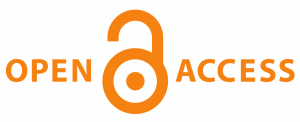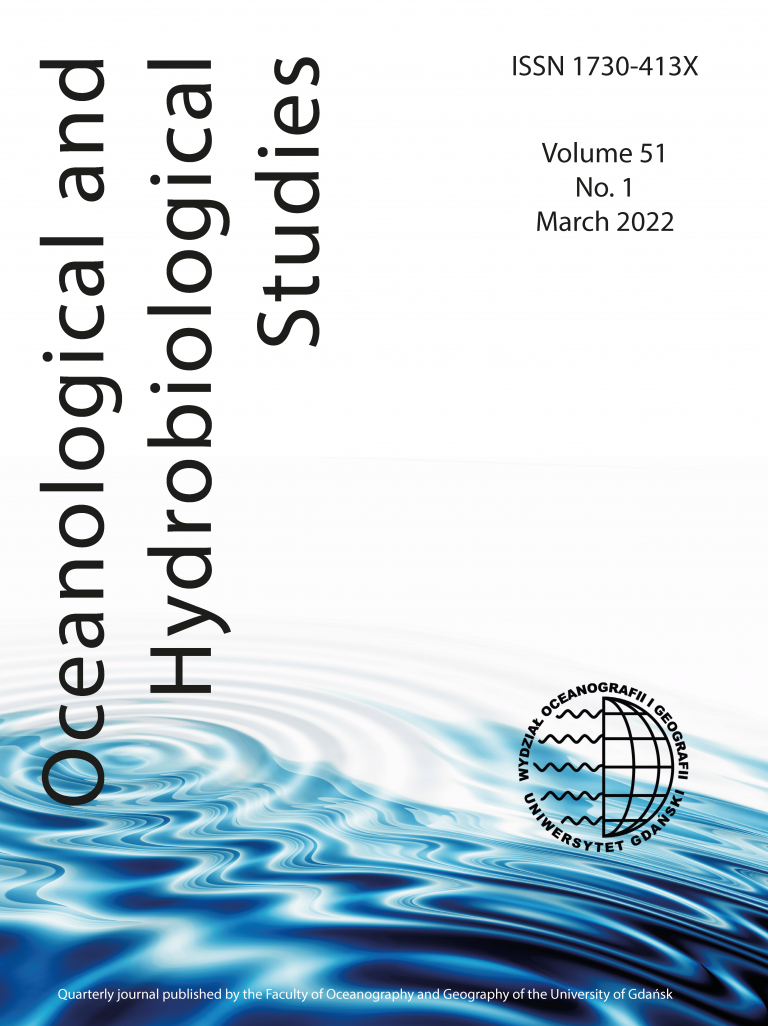Oceanological and Hydrobiological StudiesMarine BiologyMarine GeologyHydrobiologyMarine PhysicsMarine Chemistry
Previous slide
Next slide


Our Services
To provide the most comprehensive and reliable source of information
The objective of Oceanological and Hydrobiological Studies, an international journal published by the University of Gdańsk in cooperation with the Academic Publishing Company Walter DeGruyter, is to provide the most comprehensive and reliable source of information on the current knowledge in the fields of science related to both oceanology and hydrobiology. The main emphasis is on publishing high quality articles, easily available to scientists from all over the world. As an editorial team, we are convinced that Oceanological and Hydrobiological Studies will continue to grow as a journal meant for scientists and researchers who wish to keep abreast of the latest developments in these fields of science.
The Journal publishes high-quality articles by scientists from all around the world, and is devoted to topics related to the water environment, both freshwater and saltwater.
Aims and scope fields: Marine and freshwater biology, chemistry, geology, and physics.
Oceanological and Hydrobiological Studies is open to all matters concerning the water environment, thus providing the readers with a wide spectrum of topics in every issue. Articles written by both fledgling and experienced scientists are published so that their individual work is mutually complemented, and readers are provided with a sound basis for the comparison of different approaches to a given issue. The Journal is open to young scientists with fresh or polemical views on a given subject matter, provides them with significant support, and juxtaposes their knowledge and experience with scientifically mature publications written by acclaimed specialists.
The objective pursued by the Journal is to collect and publish the findings of worldwide studies on various types of water environment and climatic conditions in one medium. This will facilitate a comparison of the studies and, in the long run, will help establish contacts and close cooperation between scientists with similar areas of interest.
Quarterly: March, June, September, December
The target readers are all scientists researching the water environment irrespective of their scientific degree, experience or individual area of interest.
All articles are peer-reviewed by experts from around the world; Proofreading services for non-English authors; Fast review and editing process; Worldwide dissemination and accessibility of articles; Graphical improvement; Color printing.
Double-Blind Review
In accordance with the principles adopted by the Editorial Board of Oceanological and Hydrobiological Studies, all manuscripts submitted for publication are subject to a review carried out by two independent reviewers, i.e. a Double-Blind review. After receiving the manuscript, the Journal undertakes to proceed immediately with the technical evaluation and the subsequent review process. The time needed for this process depends on the availability of suitable experts, but usually does not take more than 40 days from the date of the correct submission of the manuscript meeting the editorial standards.
This license allows reusers to copy and distribute the material in any medium or format in unadapted form only, for noncommercial purposes only, and only so long as attribution is given to the creator.
Article Processing Charge (APC)
The Journal is currently issued in the OPEN ACCESS format licensed under the Creative Commons Attribution-NonCommercial-NoDerivs License (https://creativecommons.org/licenses/by-nc-nd/4.0/), supported by the Sciendo publishing platform. The pay access type of publishing used by Oceanological and Hydrobiological Studies does not involve any fees on the part of authors.
- Original research papers − should contain the results of experimental, empirical field data and/or theoretical studies that have not been previously published elsewhere, except in the form of a preliminary communication (reprint requested).
- Short communications − like original research papers, should also contain original results, but must be narrowly focused; brief descriptions of research that is sufficiently time sensitive to warrant a rapid communication.
- Reviews − should contain a critically written discussion of results from studies on a particular topic or a group of related topics; reviews may also provide the readers with an insightful introduction to new and groundbreaking areas of research.
The purpose of Oceanological and Hydrobiological Studies accession to the Open Access publication model is the desire to create a source of reliable information on topics related to oceanography and hydrobiology in order to enable all interested parties to benefit from the information and services provided; At the same time, we strive to meet all the necessary standards in the field of digital publishing, which is to serve science, higher education, industry, innovation, societies and people in accordance with the idea of open access.
Journal Impact Factor 2022 (JIF)
0,9
5 Year Impact Factor 2022 (5Y-JIF)
0,9
Scimago Journal Rank (SJR) 2022
0,27
Previous slide
Next slide
Current Issue | March 2022
ISSN 1730-413X
eISSN 1897-3191
ISO: Oceanol. Hydrobiol. Stud.
JCR Abbrev: OCEANOL HYDROBIOL ST
Punktacja MEiN (2023): 40 pkt.
Latest Research
About
For Authors
For Reviewers
Newslatter
Please subscribe, we will inform you about new issues, articles.

